VIEWPOINT:
Participants in the Canadian Farm Writers Federation conference in Nova Scotia this fall were given a genuine taste of the province when they toured Scotian Gold Co-op in the storied Annapolis Valley. SweeTango, a club variety apple that’s been a boon for local growers, was among the standouts as the busload of writers heard how the co-op has adapted for a new generation of growers and consumers.
But if SweeTango was the star of the show, it’s just one of many varieties grown in the province. The annual crop estimates Fruit and Vegetable Growers Canada run indicate that Nova Scotia grows all but two of the 19 commercial varieties tracked.
Moreover, fully 10% of the 2.4 million bushels of apples Nova Scotia will harvest this year aren’t among the top commercial varieties. This points to a commercial production more diverse than anywhere else in Canada.
Ontario, the largest apple-growing region in Canada with a 2024 harvest pegged at 8.8 million bushels, concentrates on just 13 of the top commercial varieties.
Meanwhile, BC is dependent on Ambrosia and Gala, which account for more than two-thirds of the 3.8 million bushels we produce. Nine varieties make up a third, while others account for less than half a percent of the crop.
The focus on just two varieties was bred of innovation, with the province allocating tens of millions of dollars to support orchard renewal with high-value varieties since 1991. A new round of funding last year required industry to conduct market assessments to identify the varieties most likely to deliver returns.
While such studies chart a forward path, Nova Scotia shows that the future is often accessed through our roots. The historic diversity of the province’s orchards has given local growers a starting point, not a sunset clause. While many varieties may not be suitable for supermarkets, they create a sense of place – one that grocers celebrate on a seasonal basis, securing hometown street cred with consumers. A revolving selection of apples from Jersey Macs and Paula Red to Gravenstein and Cortland offer flavours rarely found outside the region.
This year has seen the demise of the BC Tree Fruits Co-op, a company intertwined with the history of BC. Originally the brand under which the various co-operative packinghouses marketed their fruit, it became the natural banner under which BC’s four major co-operative packinghouses merged in 2008.
Yet as the co-ops came together, the industry was fragmenting. Growers set up their own independent packinghouses, and consumers were opting for cheaper imports at the big grocers as local became less well-defined.
And even if consumers bought local, the embrace of the major commercial varieties thanks to the replant push meant they were seldom buying something that couldn’t be grown elsewhere.
Ambrosia was the exception, and its promise was a path to financial stability for growers. Restricted production made it a reliable option, levies funded marketing and research that supported sales, and people genuinely liked it.
Yet the numbers show that BC may have put too many apples in one basket. Pinning your fortunes on commercial success isn’t wrong, but sales hinge on more than market penetration. Consumers will support local, but often as not it requires giving them a sense of ownership, allowing them to jealously savour something special and advocate for it with others.
So what’s BC’s path forward?
The marketing commission under discussion for the past several years could provide a structure, but it’s the intangible ingredients that guarantee success.
These include a recognizable, flagship brand. The goodwill BC Tree enjoyed made it very much an extension of the grower community, and of BC as a whole. But with growing competition from independent packers at home and abroad, it became one of many brands serving a market with no historical ties to the iconic leaf logo. Which domestic tree fruit brand today has anything like the resonance or recognition the BC leaf enjoyed?
There’s also a need to identify key varieties that can be successful here, something the province’s industry stabilization plan recommends. But it also means finding what may not do well elsewhere, allowing the industry to claim something no one else can.
Ambrosia used to be like this. I remember proudly taking it home to family, before it was widely grown, and excitedly telling a vendor selling the variety at a market in northern Italy that I, too, was from BC.
Salish and Nicola, with their distinctly BC names, have the potential to generate the same enthusiasm, but they’ve never been promoted to the same degree.
Aurora Golden Gala is another missed opportunity. Handling issues saw it quietly ushered off the retail stage almost as quickly as it arrived.
But what if we cultivated – both literally, and in the marketplace – such unique and hidden BC gems? Consistent with the forward-looking and innovative nature of BC’s orchard sector, they speak to the spirit of discovery in the field and on the table as well as any of the rarer, now-heritage varieties largely limited to sales at farmers markets and roadside stands.
The diversity of our crop has been lost in the push for financial viability. But the persistence of lesser-known varieties in Nova Scotia reminds us that we may have lost the potential to attract consumers seeking unique items in an increasingly homogenous world.
That’s a loss not just for consumers, but our farmers and agricultural heritage, too.
Peter Mitham is associate editor of Country Life in BC and a former contributor to Good Fruit Grower.

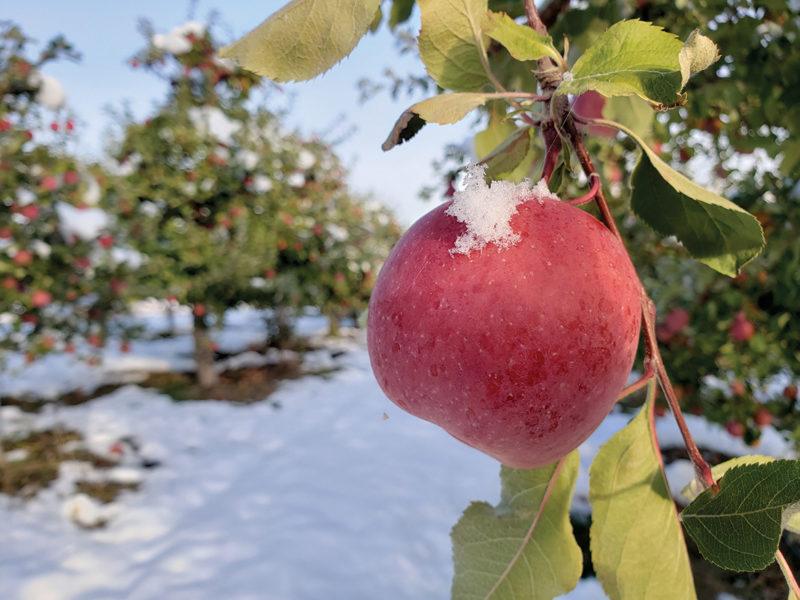
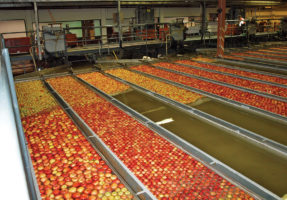

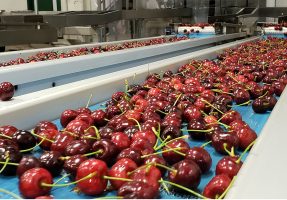
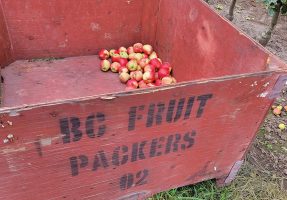
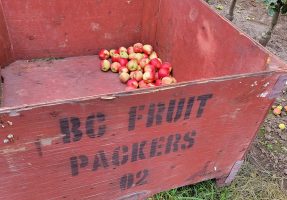
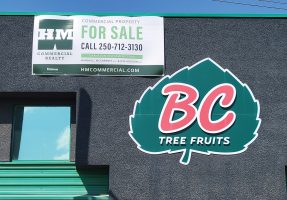
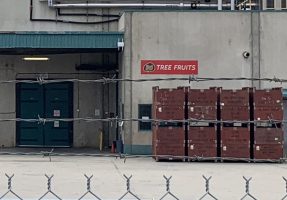
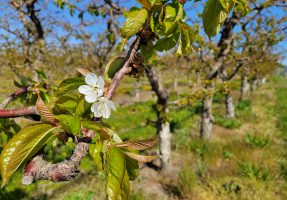
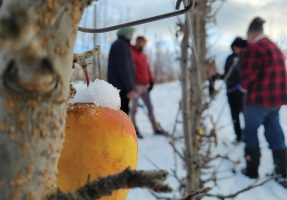
 BC Tree Fruits facility sells
BC Tree Fruits facility sells